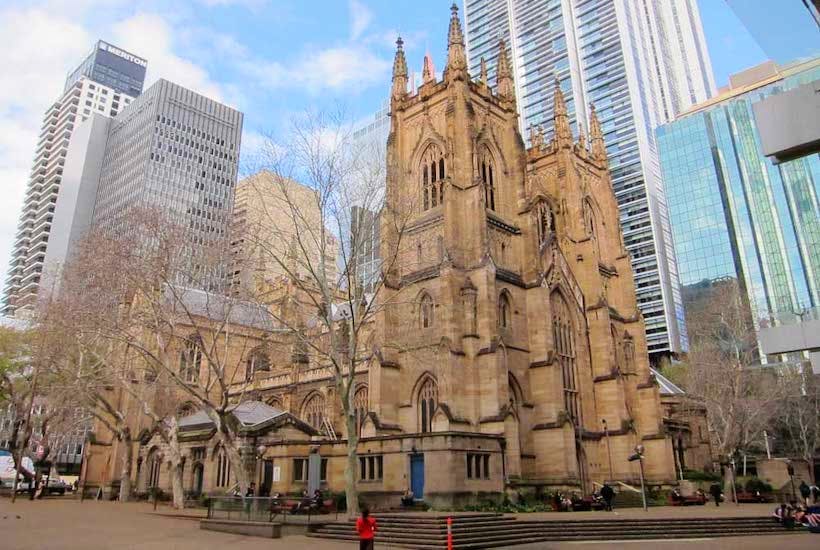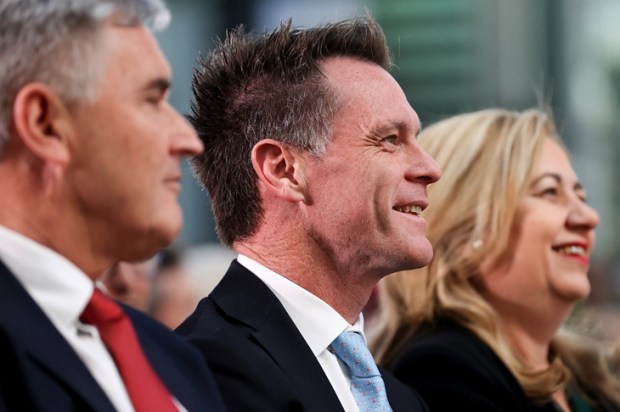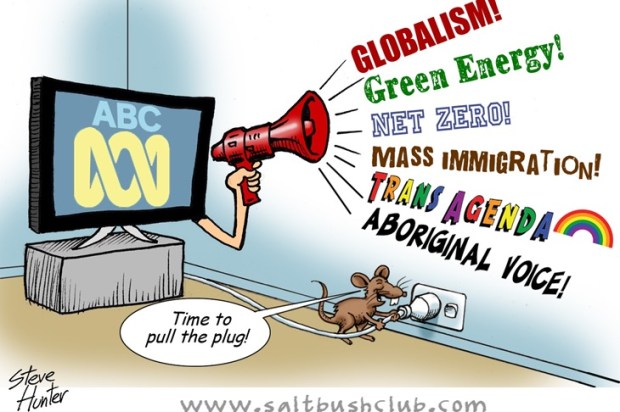Dear Dr Farrelly,
Thank you for your opinion piece in the Sydney Morning Herald from last Saturday. You mention important issues for any organisation, including religious ones, namely: abuses of power and control, and the processes in place to deal with such abuse.
I won’t comment on the personal circumstances of the Reverend Dave Smith because I would do so only out of ignorance, but I will say that your portrayal of the Anglican Diocese of Sydney and its processes, as well as the behaviour of one of its bishops rings false to me.
I am married to an Anglican minister in Sydney. I’ve watched the Diocese at work for 20 years or so, and while I agree that every organisation (and every person, mind you) must pay close attention to abuses of power and the exertion of inappropriate control, I was disappointed that your piece misfired as it did.
Your description of the Diocese as one that abuses power and is in the business of control definitely makes for exciting Saturday morning reading or a very watchable television series, but I wouldn’t call it accurate.
For starters, there’s no such thing as the Diocese of Sydney as a single entity, either nefarious or benevolent. The Sydney Diocese is made up of roughly 270 parishes. Representatives from these parishes make up Synod, the governing body of the Diocese, which operates like a kind of parliament.
The members of Synod are a bunch of regular people — one-third clergy and two-thirds parishioners (more men than women, granted) — with differing views on things. It is this group of people who could give bishops the power to revoke licenses at their pleasure, but so far, they haven’t. Sometimes I wish they would (I’ll get back to this).
You attest that the teaching within the Anglican Diocese of Sydney pivots on control, but you give no evidence for this. I can only speak from my experience of Anglican churches in Sydney, and what I’ve witnessed is teaching that pivots on the person and work, life, death and resurrection of Jesus Christ.
From what I’ve read about Jesus, he isn’t really into control, unless you’re talking about self-control. His jam is more sacrifice, restoration, healing, and total transformation of lives, hearts, minds, relationships and attitudes towards God and one another. If there is a model of leadership that is promoted within this Diocese, it’s a sacrificial one.
As the sacrificial, servant-heartedness of Jesus is the teaching of churches in the Diocese more often than not, and as the existing legislation of Synod is as it is, there’s really no such thing as an all-powerful Bishop in the Anglican Diocese of Sydney who can revoke a minister’s licence ‘at his pleasure’, or displeasure for that matter.
The notion of a powerful Bishop is the unicorn of the Diocese, as well as an oxymoron, just as “clearly confused” or “fuzzy logic” are oxymorons.
Good ministers are vulnerable in this Diocese, yes. Vulnerable to verbal abuse, slander and sucker punches, vulnerable to burn-out, vulnerable to the possibility of abusing their own power and privilege, but vulnerable to too-powerful bishops? Hardly.
As for this string of assertions? I’ll answer each in turn.
‘The bizarre “headship” doctrine requires a man to keep control of his marriage’ – There is no such requirement.
‘It requires the woman to “submit”’ – There is no such requirement.
‘It gives the organisation hierarchy outright control’ – This isn’t legally possible.
‘All very Handmaid’s Tale’ — Dramatic, but false. Praise be.
There are abusers of power within the Anglican Diocese of Sydney, but Dave Smith’s bishop isn’t one of them. His bishop (and mine — he’s also the bishop for my church) is a kind man who, at least from what I’ve observed in my dealings with him, seems to love Jesus, love his family, work hard, and take the many responsibilities of being a bishop very humbly and seriously.
A bishop does many things, including baptising children and adult converts to Christianity, confirming new communicants to the Christian faith, visiting parishes, providing supply preaching for churches, answering the many questions that come up for rectors in the course of a day or a week or a year of ministry – this year being a particularly challenging one for church ministers. But this is not all that a bishop does, he also listens to parishioners if or when their minister oversteps in his position and abuses the power that he has been given as rector.
The work of a bishop in the Anglican Diocese of Sydney appears to me to be one of curtailing and preventing abuses of power where possible, not extending or promoting them.
Most ministers and rectors that I know are kind people and care deeply about others. They cook meals for people, they visit the sick and dying, they visit new babies, they start neighbourhood playgroups, they baptise, they marry, and they bury people, they pray with and for people, they read the Bible with people who would like to do so, they help women leave abusive relationships, they open their homes, they organise and lead and preach at Sunday services week after week after week.
Ministers also rinse off urine from the doors of their churches and shovel up the shit (literal, and figurative too I guess) that people squat and leave in their doorways and driveways, footpaths and gardens. They do this without complaining about it; they just do it. In short, they listen to people, they work with people, they love people. I would hazard a guess that most ministers in the Anglican Diocese of Sydney are more like this than not.
Occasionally there are ministers who, unfortunately for all, abuse their power and leave a string of toxic relational waste in their wake. In such instances as this — rare, but it can happen, it does happen — then what you want is a bishop who can help you and your church through that horrible ordeal. You want a bishop who can, if possible, limit the power that person has and hopefully prevent such an abusive individual from holding a leadership position in any church or coming into contact with vulnerable people in a parish. In cases such as these, you want a bishop like my bishop, like Rev Dave Smith’s bishop, to have a bit more power, not less.
Sincerely,
Laurel Moffatt
Got something to add? Join the discussion and comment below.
Get 10 issues for just $10
Subscribe to The Spectator Australia today for the next 10 magazine issues, plus full online access, for just $10.


























Comments
Don't miss out
Join the conversation with other Spectator Australia readers. Subscribe to leave a comment.
SUBSCRIBEAlready a subscriber? Log in